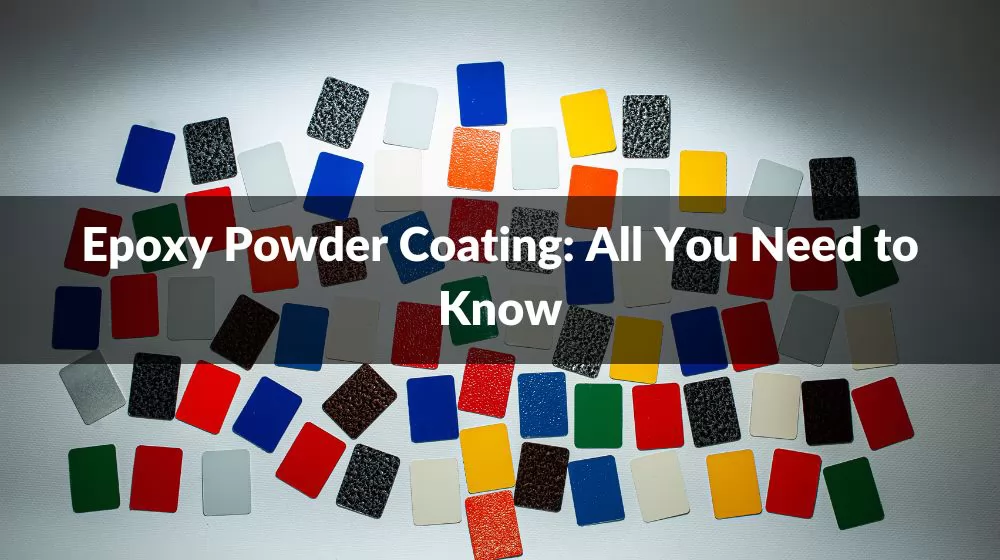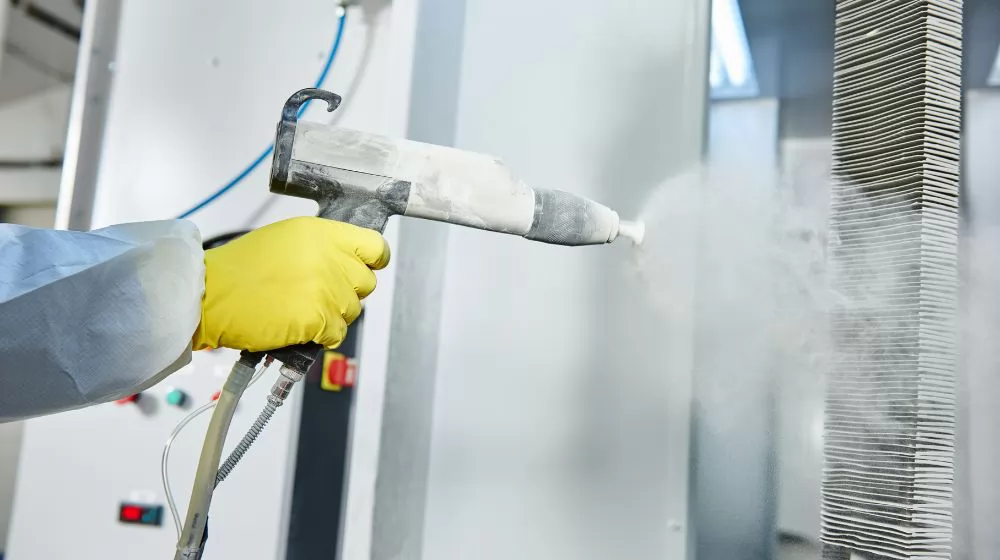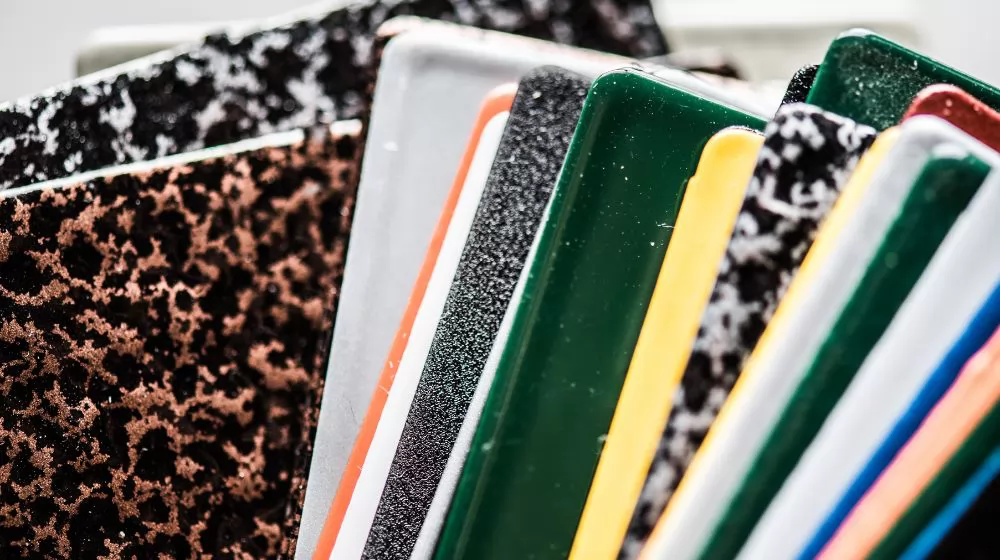
.png)

.png)
.png)


-
.png) 0086-757-85407388
0086-757-85407388 -

-
 terrychen@wintoly.com
terrychen@wintoly.com


.png)

.png)
.png)


.png)




Table of contents:
Epoxy powder coating stands as a versatile and widely utilized method for providing surfaces with both aesthetic appeal and robust protection. From metals to non-metal substrates, this advanced coating technique has found its application across various industries. In this comprehensive guide, we delve into the intricacies of epoxy powder coating, exploring its production process, suitable substrates, and the myriad benefits it brings to coated surfaces.
Epoxy powder coating is a highly durable and protective finish applied to various materials, primarily metals, through a specialized coating process. This coating is composed of epoxy resin, a thermosetting polymer, combined with a curing agent and pigments. The application involves electrostatically spraying the powder onto the substrate, which is then cured under heat to form a hard, smooth, and resilient surface.
The epoxy powder coating process offers a distinctive advantage over traditional liquid coatings due to its environmentally friendly nature. Unlike solvent-based coatings, epoxy powder coatings release negligible volatile organic compounds (VOCs), reducing the impact on air quality and making it a more sustainable option.
Epoxy powder coating is composed of a meticulous blend of key ingredients, carefully selected to ensure optimal performance and durability. The primary components of epoxy powder coating include epoxy resin, curing agents, pigments, and sometimes additives. Here's an overview of each component:
Epoxy Resin:
Epoxy resin serves as the foundational element in the formulation of epoxy powder coatings. This thermosetting polymer is known for its excellent adhesion, toughness, and chemical resistance. Its molecular structure enables the formation of a cross-linked network during the curing process, contributing to the coating's robustness.
Curing Agents:
Curing agents, often referred to as hardeners or catalysts, play a crucial role in the epoxy powder coating process. They initiate the chemical reaction with the epoxy resin, facilitating the cross-linking process. The type and amount of curing agent used influence the coating's final properties, such as hardness, flexibility, and curing time.
Pigments:
Pigments are added to epoxy powder coatings not only for aesthetic purposes but also to provide additional functionality. Apart from imparting color and texture to the coating, pigments contribute to UV resistance and can enhance corrosion protection. The choice of pigments depends on the desired appearance and performance characteristics of the final coating.
Additives (Optional):
Depending on the specific application requirements, epoxy powder coatings may incorporate additives. These can include flow control agents, leveling agents, or special additives to improve specific properties of the coating. The inclusion of additives allows manufacturers to customize the formulation based on the intended use and desired performance of the coating.

Epoxy powder coating stands out as a popular choice for finishing surfaces due to its numerous advantages, offering a range of benefits across various industries. Here are key advantages associated with the use of epoxy powder coating:
Exceptional Durability:
Epoxy powder coatings are renowned for their outstanding durability. The cured finish forms a robust and resilient surface that withstands abrasion, impact, and environmental factors. This durability makes epoxy powder coating particularly suitable for applications requiring long-lasting protection against wear and tear.
Corrosion Resistance:
One of the primary strengths of epoxy powder coating lies in its remarkable resistance to corrosion. The protective layer created by the coating acts as a barrier, shielding the underlying substrate from the effects of moisture, chemicals, and harsh weather conditions. This corrosion resistance makes epoxy powder coating a preferred choice for metal surfaces in industries such as automotive, marine, and infrastructure.
High Chemical Resistance:
Epoxy powder coatings exhibit a high level of resistance to a wide range of chemicals. This attribute is especially valuable in industrial settings where exposure to corrosive substances is common. The chemical resistance of epoxy powder coatings enhances their suitability for applications in chemical processing plants, laboratories, and other environments where resistance to chemical exposure is crucial.
Versatility in Applications:
The versatility of epoxy powder coatings extends across diverse substrates, including metals, plastics, and composites. This flexibility makes them applicable in various industries, such as electronics, appliances, furniture, and architectural elements. The ability to achieve a uniform and attractive finish on different materials contributes to the widespread use of epoxy powder coatings.
Environmental Friendliness:
Epoxy powder coatings are environmentally friendly compared to traditional solvent-based coatings. The application process produces minimal volatile organic compounds (VOCs), contributing to improved air quality and reduced environmental impact. This eco-friendly characteristic aligns with contemporary sustainability initiatives in manufacturing and finishing processes.
Cost-Effective Application:
The application of epoxy powder coating is an efficient and cost-effective process. The electrostatic spray method allows for precise and uniform coverage, minimizing waste and reducing the overall coating application costs. Additionally, the high transfer efficiency of the powder coating process contributes to resource conservation.
Aesthetic Appeal:
Beyond their protective qualities, epoxy powder coatings offer a wide range of colors and finishes, enhancing the aesthetic appeal of coated surfaces. This feature is particularly valuable in industries where visual appearance matters, such as automotive design, architectural structures, and consumer goods.

The production of epoxy powder coating involves a series of carefully orchestrated steps to achieve a durable and uniform finish. Initially, epoxy resin, heated to a specific temperature, is transferred from a reactor onto a cooling steel belt. Once the resin solidifies, it is crushed and ground into small flakes by a specialized device.
These epoxy flakes, along with curing agents, additives, post additives, tint pigments, and extenders, are combined in extruders under elevated temperature and pressure conditions. The precise quantities of each ingredient depend on the specific formulations tailored for the intended application. Subsequently, the blended mixture is allowed to cool before undergoing a milling process to achieve the desired particle size.
The application of powder coatings onto surfaces is accomplished using a powder spray gun. As the powder is propelled through the gun's spray head, it becomes electrically charged. The metal component, designated for powder coating and grounded, acts like a magnet, ensuring even distribution and adherence of the charged powder particles to the surface. Following the coating process, the metal object is placed in an oven where the powder coating undergoes a melting and solidification reaction. Once the powder coating hardens and cools, the final coating firmly adheres to the surface, providing a durable and protective finish.
Metal Surfaces:
Steel: Epoxy powder coating is commonly applied to steel surfaces, offering excellent corrosion resistance and durability.
Aluminum: Aluminum substrates benefit from epoxy coatings, providing a protective layer that is resistant to weathering and chemicals.
Iron: Epoxy powder coating helps prevent rust and corrosion on iron surfaces, enhancing their longevity.
Non-Metal Surfaces:
Plastics: Some epoxy powder coatings are formulated to adhere effectively to certain plastics, enhancing their durability and aesthetic appeal.
Fiberglass: Epoxy coatings can be applied to fiberglass surfaces, providing protection against environmental factors and improving the material's lifespan.
MDF (Medium Density Fiberboard):
Epoxy powder coating can be used on MDF surfaces, adding a durable and decorative finish to furniture, cabinetry, and other wood-based products.
Glass:
In some specialized applications, epoxy powder coatings can be applied to glass surfaces, combining protection with a visually appealing finish.
Ceramics:
Certain epoxy formulations are suitable for coating ceramic substrates, providing a protective layer that is resistant to abrasion and chemicals.
Heat-Sensitive Materials:
Epoxy powder coating can be applied to heat-sensitive materials, as the curing process typically involves lower temperatures compared to liquid coatings, minimizing the risk of thermal damage.

Epoxy powder coatings have emerged as a key player in the surface treatment space, offering the perfect combination of durability, versatility and visual appeal. As industries continue to seek innovative solutions to protect and extend the life of various materials, understanding the nuances of epoxy powder coatings has become critical. If your business requires powder coatings, please contact Wintoly to provide you with high-quality powder coatings and services!

 terrychen@wintoly.com
terrychen@wintoly.com
.png) 0086-757-85407388
0086-757-85407388
 6 Chaoyang Rd., National Demonstration Eco-industrialzone, Nanhai, Foshan,Guangdong,China
6 Chaoyang Rd., National Demonstration Eco-industrialzone, Nanhai, Foshan,Guangdong,China

.png)
